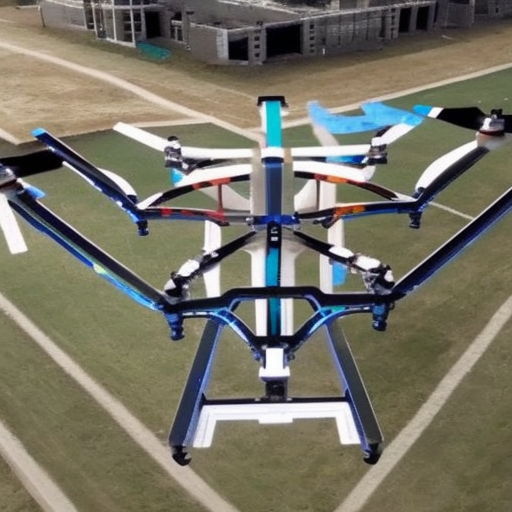Drones: Revolutionizing Industries and Transforming Society
Drones, also known as unmanned aerial vehicles (UAVs), are aircraft that operate without a human pilot on board. They have gained significant popularity in recent years due to their versatility and wide range of applications. Drones are revolutionizing industries and transforming society by providing innovative solutions to various challenges.
Applications in Industries
Drones have found applications in numerous industries, including agriculture, construction, filmmaking, and delivery services. In agriculture, drones equipped with sensors and cameras can monitor crops, identify diseases, and optimize irrigation. This technology enables farmers to make data-driven decisions, leading to increased efficiency and reduced costs.
In the construction industry, drones are used for surveying and mapping sites, inspecting structures, and monitoring construction progress. They provide accurate and up-to-date data, improving safety and efficiency on construction sites. Additionally, drones equipped with thermal cameras can detect heat loss in buildings, helping to identify energy inefficiencies.
Filmmakers have embraced drones for capturing breathtaking aerial shots that were previously only possible with expensive helicopters or cranes. Drones equipped with high-quality cameras allow filmmakers to unleash their creativity and capture unique perspectives, enhancing the visual experience for audiences.
Delivery services are also being transformed by drones. Companies like Amazon and UPS are experimenting with drone delivery systems to transport packages quickly and efficiently. Drones can navigate through traffic and deliver packages to remote or inaccessible areas, reducing delivery times and costs.
Advancements in Technology
Advancements in drone technology have played a crucial role in their widespread adoption. Drones have become smaller, lighter, and more affordable, making them accessible to a broader range of users. Improved battery life allows drones to stay airborne for longer periods, increasing their operational capabilities.
The development of autonomous flight systems has further expanded the potential of drones. These systems enable drones to navigate and make decisions independently, reducing the need for constant human control. Artificial intelligence and machine learning algorithms are being integrated into drones, allowing them to analyze data in real-time and adapt to changing environments.
Challenges and Regulations
Despite their numerous advantages, drones also present challenges and raise concerns. Privacy is a significant concern, as drones equipped with cameras can invade personal space and compromise privacy rights. Regulations regarding drone usage and airspace restrictions have been implemented to address these concerns and ensure responsible drone operation.
Safety is another critical consideration. Drones can pose risks to manned aircraft if not operated safely. Collisions between drones and aircraft have occurred, highlighting the need for strict regulations and safety measures. Geofencing technology, which creates virtual boundaries to prevent drones from entering restricted areas, is being implemented to enhance safety.
Future Implications
The future implications of drones are vast and exciting. Drones are expected to play a significant role in the development of smart cities, where they can be used for traffic management, surveillance, and emergency response. In the healthcare sector, drones have the potential to deliver medical supplies to remote areas or provide emergency medical assistance in disaster-stricken regions.
The entertainment industry is likely to see further integration of drones into live performances, creating immersive experiences for audiences. Drones equipped with LED lights can be synchronized to create stunning light shows and aerial displays.
Moreover, the use of drones in environmental conservation is gaining traction. Drones can monitor wildlife populations, track deforestation, and aid in disaster management. They provide valuable data for research and conservation efforts, contributing to the preservation of ecosystems.
In conclusion, drones are revolutionizing industries and transforming society by providing innovative solutions to various challenges. Their applications in agriculture, construction, filmmaking, and delivery services are enhancing efficiency and reducing costs. Advancements in technology, such as autonomous flight systems and artificial intelligence, are expanding the potential of drones. However, challenges and regulations regarding privacy and safety must be addressed. The future implications of drones are vast, with potential applications in smart cities, healthcare, entertainment, and environmental conservation. Drones are reshaping the way we work, live, and interact with the world around us.












